1. INDUSTRIAL EXTERIORIZATION OF MEMORY
1.1. Mnemotechnology
2. Before computers were machines, they were people (186)
3. COMPUTER MEMORY (SACK)
3.1. CONTEMPORARY MEMORY THEORISTS: Human Memory Vs. Computer Memory
3.1.1. Cognitive science and multiple other sciences
3.1.1.1. Computer memory is the best model of human memory
3.1.1.2. Computer Science
3.1.1.2.1. Notions of memory linked to bureaucracy, business & military
3.2. HISTORY
3.2.1. "Memory-as-wax-tablet" Plato (184)
3.2.2. If computers had "internal states", humans did too = end of behaviorism (187)
3.2.2.1. As media tech evolved so did comparisons to human memory by theorists.
3.2.2.2. Computer memory modeled from human memory (188)
3.2.2.2.1. Concept explored by Alan Turing 1936
3.2.2.3. Passed to Aristotle
3.2.2.3.1. Passed to Cicero, Quinitilian, Freud, Derrida
4. TECHNOLOGY & MEMORY (SCHRAG)
4.1. MEMORY
4.1.1. HUMAN (206)
4.1.1.1. fundamental concept of human identity and one of its oldest technologies
4.1.1.1.1. The process of narrating and making sense of experience, of storage and recovery, at both individual and collective levels.
4.1.2. COMPUTER (206)
4.1.2.1. type of mnemonic technology
4.1.2.1.1. expansive category of devices used to store and recall data or programs
4.1.3. EPHEMERAL TECHNOLOGIES
4.1.3.1. What most of the internet today is characterized by
4.1.3.1.1. Example: Snapchat
4.2. HISTORY
4.2.1. Plato in Phaedrus (206)
4.2.1.1. archiving is an act of forgetting. Plato also condemned writing.
4.2.1.1.1. DIGITAL MEMORY HISTORY
4.3. POWER & THE ARCHIVE
4.3.1. Archives are curated, history constructed by those in power
4.3.1.1. thus an oversight over historical and archival practices is imperative
4.3.1.1.1. With no oversight, individuals and institutions have an imbalance of power given the uneven levels of access, and ability to analyze and interpret information
4.4. MEMORY TECHNOLOGY & THE HUMAN MIND
4.4.1. All memory is both mediated and historically contingent
4.4.1.1. "Digitally reconstructed memory and forgetting" lead to questions surrounding our archive, histories and ourselves
5. (STIEGLER)
5.1. Anamnesis
5.1.1. The embodied act of remembering
5.2. Digital Hypomnemata
5.2.1. Today's computational memory aids
5.2.2. GRAMMATIZATION
5.2.2.1. LOGOS
5.2.2.1.1. GESTURE
5.2.2.1.2. TECHNE
5.2.2.2. EPIPHYLOGENESIS
5.3. Attaching memory to objects
5.3.1. Hypomnesis
5.3.1.1. Results in LOSS of MEMORY & KNOWLEDGE
